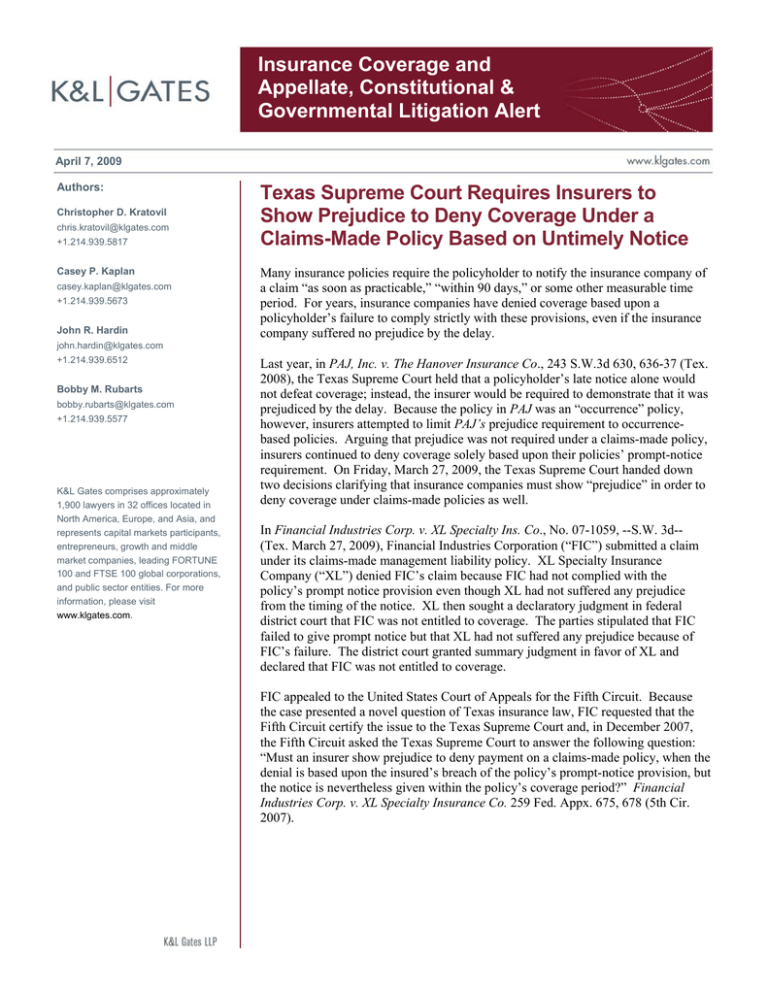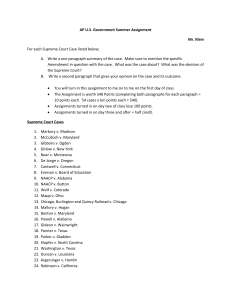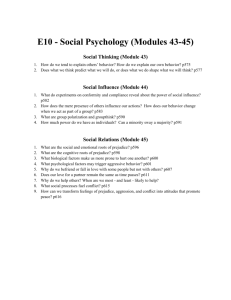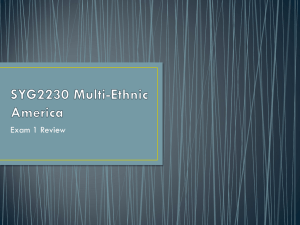
Insurance Coverage and
Appellate, Constitutional &
Governmental Litigation Alert
April 7, 2009
Authors:
Christopher D. Kratovil
chris.kratovil@klgates.com
+1.214.939.5817
Casey P. Kaplan
casey.kaplan@klgates.com
+1.214.939.5673
John R. Hardin
Texas Supreme Court Requires Insurers to
Show Prejudice to Deny Coverage Under a
Claims-Made Policy Based on Untimely Notice
Many insurance policies require the policyholder to notify the insurance company of
a claim “as soon as practicable,” “within 90 days,” or some other measurable time
period. For years, insurance companies have denied coverage based upon a
policyholder’s failure to comply strictly with these provisions, even if the insurance
company suffered no prejudice by the delay.
john.hardin@klgates.com
+1.214.939.6512
Bobby M. Rubarts
bobby.rubarts@klgates.com
+1.214.939.5577
K&L Gates comprises approximately
1,900 lawyers in 32 offices located in
North America, Europe, and Asia, and
represents capital markets participants,
entrepreneurs, growth and middle
market companies, leading FORTUNE
100 and FTSE 100 global corporations,
and public sector entities. For more
information, please visit
www.klgates.com.
Last year, in PAJ, Inc. v. The Hanover Insurance Co., 243 S.W.3d 630, 636-37 (Tex.
2008), the Texas Supreme Court held that a policyholder’s late notice alone would
not defeat coverage; instead, the insurer would be required to demonstrate that it was
prejudiced by the delay. Because the policy in PAJ was an “occurrence” policy,
however, insurers attempted to limit PAJ’s prejudice requirement to occurrencebased policies. Arguing that prejudice was not required under a claims-made policy,
insurers continued to deny coverage solely based upon their policies’ prompt-notice
requirement. On Friday, March 27, 2009, the Texas Supreme Court handed down
two decisions clarifying that insurance companies must show “prejudice” in order to
deny coverage under claims-made policies as well.
In Financial Industries Corp. v. XL Specialty Ins. Co., No. 07-1059, --S.W. 3d-(Tex. March 27, 2009), Financial Industries Corporation (“FIC”) submitted a claim
under its claims-made management liability policy. XL Specialty Insurance
Company (“XL”) denied FIC’s claim because FIC had not complied with the
policy’s prompt notice provision even though XL had not suffered any prejudice
from the timing of the notice. XL then sought a declaratory judgment in federal
district court that FIC was not entitled to coverage. The parties stipulated that FIC
failed to give prompt notice but that XL had not suffered any prejudice because of
FIC’s failure. The district court granted summary judgment in favor of XL and
declared that FIC was not entitled to coverage.
FIC appealed to the United States Court of Appeals for the Fifth Circuit. Because
the case presented a novel question of Texas insurance law, FIC requested that the
Fifth Circuit certify the issue to the Texas Supreme Court and, in December 2007,
the Fifth Circuit asked the Texas Supreme Court to answer the following question:
“Must an insurer show prejudice to deny payment on a claims-made policy, when the
denial is based upon the insured’s breach of the policy’s prompt-notice provision, but
the notice is nevertheless given within the policy’s coverage period?” Financial
Industries Corp. v. XL Specialty Insurance Co. 259 Fed. Appx. 675, 678 (5th Cir.
2007).
Insurance Coverage and Appellate, Constitutional &
Governmental Litigation Alert
On March 27, 2009, the Texas Supreme Court
announced its decision to “answer the certified
question in the affirmative and hold that an insurer
must show prejudice to deny payment on a claimsmade policy, when the denial is based upon the
insured’s breach of the policy’s prompt-notice
provision, but the notice is given within the policy’s
coverage period.” Financial Industries Corp. v. XL
Specialty Ins. Co., No. 07-1059, -- S.W.3d-- (Tex.
March 27, 2009). Thus, absent the insurer
establishing that it was prejudiced, a policyholder
does not lose coverage under a claims-made policy
by giving late notice of a claim, provided that the
late notice is given within the policy period.
The Texas Supreme Court also announced its
decision in a substantially similar case, Prodigy
Communications Corp. v. Agricultural Excess &
Surplus Ins. Co., No. 06-0598, -- S.W.3d -- (Tex.
March 27, 2009). The Court held that “[i]n a
claims-made policy, when an insured notifies its
insurer of a claim within the policy term or other
reporting period that the policy specifies, the
insured’s failure to provide notice ‘as soon as
practicable’ will not defeat coverage in the absence
of prejudice to the insurer.” The Court reasoned that
the provision requiring “notice ‘as soon as
practicable’ was not an essential part of the
bargained-for exchange under the claims-made
policy at issue here” and that, under fundamental
principles of contract law, an affirmative showing of
prejudice by the insurance company was therefore
required.
Taken together, the Texas Supreme Court’s twin
decisions in Financial Industries Corp. and Prodigy
Communications represent a major victory for
Texas policyholders with claims-made policies.
The two decisions also continue a recent trend in
which commercial policyholders have fared
increasingly well before the Texas Supreme Court.
Because similar notice/prejudice issues regularly
arise in insurance coverage litigation across the
country, the Texas Supreme Court’s decisions in
Financial Industries Corp. and Prodigy
Communications may well be cited and used as
persuasive authority by courts in other jurisdictions
addressing this issue.
An appellate team from the Dallas office of K&L
Gates LLP successfully represented FIC in this case
before both the Fifth Circuit and the Texas Supreme
Court.
K&L Gates comprises multiple affiliated partnerships: a limited liability partnership with the full name K&L Gates LLP qualified in Delaware and
maintaining offices throughout the U.S., in Berlin and Frankfurt, Germany, in Beijing (K&L Gates LLP Beijing Representative Office), in Singapore
(K&L Gates LLP Singapore Representative Office), and in Shanghai (K&L Gates LLP Shanghai Representative Office); a limited liability partnership
(also named K&L Gates LLP) incorporated in England and maintaining our London and Paris offices; a Taiwan general partnership (K&L Gates)
which practices from our Taipei office; and a Hong Kong general partnership (K&L Gates, Solicitors) which practices from our Hong Kong office.
K&L Gates maintains appropriate registrations in the jurisdictions in which its offices are located. A list of the partners in each entity is available for
inspection at any K&L Gates office.
This publication is for informational purposes and does not contain or convey legal advice. The information herein should not be used or relied upon
in regard to any particular facts or circumstances without first consulting a lawyer.
©2009 K&L Gates LLP. All Rights Reserved.
April 7, 2009
2




